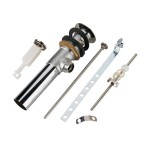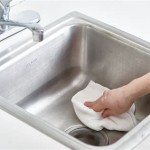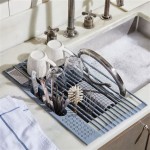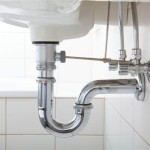How To Fix Sink Faucet
A sink faucet is a plumbing fixture that provides water to a sink. It is typically made of metal and has a handle or lever that controls the flow of water. Faucets can be either single-handle or two-handle, and they can come in a variety of styles to match the décor of your bathroom or kitchen.
Like any other plumbing fixture, faucets can sometimes develop problems. If your sink faucet is not working properly, there are a few things you can do to try to fix it yourself before calling a plumber. Here are a few of the most common sink faucet problems and how to fix them:
Leaking Faucet
A leaking faucet is one of the most common plumbing problems. There are a few different things that can cause a faucet to leak, including a worn-out washer, a damaged O-ring, or a loose nut or bolt. To fix a leaking faucet, you will need to identify the source of the leak and replace the worn-out part.
If the leak is coming from the base of the faucet, it is likely caused by a worn-out washer. To replace the washer, you will need to remove the handle and then unscrew the packing nut. Once the packing nut is removed, you will be able to access the washer and replace it with a new one.
If the leak is coming from the spout of the faucet, it is likely caused by a damaged O-ring. To replace the O-ring, you will need to remove the aerator and then unscrew the spout. Once the spout is removed, you will be able to access the O-ring and replace it with a new one.
If the leak is coming from the handle of the faucet, it is likely caused by a loose nut or bolt. To tighten the nut or bolt, you will need to use a wrench or pliers.
Dripping Faucet
A dripping faucet is another common plumbing problem. A dripping faucet is caused by a worn-out washer or a damaged O-ring. To fix a dripping faucet, you will need to replace the worn-out part.
To replace the washer, you will need to remove the handle and then unscrew the packing nut. Once the packing nut is removed, you will be able to access the washer and replace it with a new one.
To replace the O-ring, you will need to remove the aerator and then unscrew the spout. Once the spout is removed, you will be able to access the O-ring and replace it with a new one.
Faucet Handle Is Loose
If the handle of your faucet is loose, it is likely caused by a loose screw. To tighten the screw, you will need to use a screwdriver.
To tighten the screw, you will need to insert the screwdriver into the screw and turn it clockwise. Be careful not to overtighten the screw, as this could damage the faucet.
Faucet Handle Is Stiff
If the handle of your faucet is stiff, it is likely caused by a buildup of mineral deposits. To remove the mineral deposits, you will need to use a vinegar solution.
To make a vinegar solution, you will need to mix equal parts vinegar and water. Once the solution is mixed, you will need to pour it into the faucet and let it sit for several hours. After several hours, you will need to flush the faucet with water to remove the vinegar solution.
Faucet Is Making a Noise
If your faucet is making a noise, it is likely caused by a loose washer or a damaged O-ring. To fix the noise, you will need to replace the worn-out part.
To replace the washer, you will need to remove the handle and then unscrew the packing nut. Once the packing nut is removed, you will be able to access the washer and replace it with a new one.
To replace the O-ring, you will need to remove the aerator and then unscrew the spout. Once the spout is removed, you will be able to access the O-ring and replace it with a new one.
How To Replace A Kitchen Sink Faucet
How To Fix Loose Sink Faucet
How To Fix A Bathroom Faucet 14 Steps
Properly Fixing A Leaky Sink Faucet Wallside Windows
How To Fix A Leaky Faucet Guides For Every Design And Style
Fixing A Loose Kitchen Faucet
5 Reasons Your Faucet Is Dripping Water How To Fix It
Faucet Repair Guide How To A Leaky Howstuffworks
How To Fix A Loose Tap
How To Change A Kitchen Faucet Family Handyman







